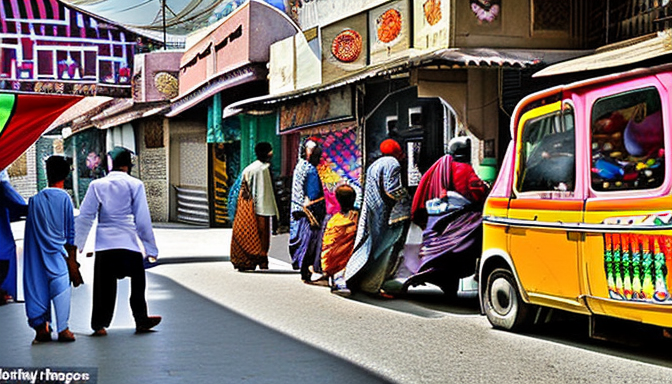Karachi is more than just a city; it’s a living archive of stories. When you walk its streets, you can almost hear the whispers of the past. From the bustling markets to the quiet corners, every nook has a tale to tell. Imagine sitting down with someone who has lived through Karachi’s many transformations. What would they say? Their memories are like threads, weaving together a vibrant tapestry of experiences.
Listening to these stories is essential. It’s like holding a mirror to the city’s soul. Each narrative reflects the diversity and resilience of its people. You hear about the joy of festivals, the pain of loss, and the everyday struggles that shape lives. These oral histories help us connect with one another, creating a sense of community. They remind us that, despite our differences, we share a common thread.
Efforts to capture these voices are crucial. Various initiatives aim to record these invaluable narratives, ensuring that future generations understand the city’s rich heritage. By documenting these stories, we preserve not just memories but also the identity of Karachi. It’s a way to honor those who came before us and to inspire those who will follow.
So, next time you’re in Karachi, take a moment to listen. You might just uncover a story that resonates with your own. After all, in every story lies a piece of our shared humanity.
The Power of Storytelling in Karachi
Storytelling is more than just sharing tales; it’s a bridge connecting the past with the present. In Karachi, the bustling heart of Pakistan, stories flow like the waves of the Arabian Sea. They carry with them the weight of history, culture, and emotion. Have you ever listened to someone recount their childhood? It’s like stepping into a time machine. You see the world through their eyes, feel their joys and sorrows, and understand their struggles.
In Karachi, these narratives are often passed down through generations. Families gather in living rooms, sharing tales of their ancestors and the city’s evolution. Each story is a thread in the rich tapestry of Karachi’s identity. It’s not just about the events; it’s about the people. The laughter, the tears, and the lessons learned. This oral tradition fosters a sense of community, reminding us that we are all part of something larger.
Moreover, listening to firsthand accounts from those who witnessed Karachi’s past is crucial. It helps us capture memories that might otherwise fade away. These stories highlight the resilience of Karachiites, showcasing their ability to adapt and thrive amidst challenges. As we sit with elders, we absorb their wisdom, understanding the values that shaped our community.
Ultimately, storytelling in Karachi is a powerful tool. It not only preserves history but also strengthens bonds among residents. So, the next time you hear a story, take a moment. Listen closely. You might just find a piece of yourself in it.

Preserving Karachi’s Cultural Heritage
In a city as vibrant as Karachi, the past is alive in the stories of its people. These tales are not just words; they are the threads that weave together the rich tapestry of this metropolis. Listening to the oral histories of those who have witnessed Karachi’s evolution is like opening a time capsule. Each story is a glimpse into a world that shaped the city’s identity.
Imagine sitting down with an elderly resident, their eyes sparkling with memories. They recount tales of bustling markets, the aroma of spices wafting through the air, and the laughter of children playing in the streets. These narratives form a vital part of Karachi’s cultural heritage. They remind us of where we come from, and they help us understand the complex social fabric that defines this city.
Efforts to document these oral histories are crucial. Many organizations and community groups are stepping up to capture these voices. They conduct interviews, host storytelling events, and create archives that preserve these invaluable memories. By doing so, they not only celebrate Karachi’s diverse traditions but also ensure that future generations can connect with their roots.
As we listen and share, we build a bridge between the past and the present. Every story told is a step towards preserving our unique identity. So, let’s cherish these narratives and keep them alive, for they are the heart and soul of Karachi.
Frequently Asked Questions
- What is the significance of oral narratives in Karachi?
Oral narratives in Karachi are crucial as they preserve the city’s rich history and cultural diversity. They allow individuals to share personal stories, fostering a sense of community and belonging among residents.
- How are efforts being made to preserve Karachi’s cultural heritage?
Various initiatives are underway to document and celebrate Karachi’s cultural heritage. These include recording oral histories, organizing community events, and collaborating with local artists to ensure the city’s diverse traditions are safeguarded for future generations.
- Why is storytelling important in urban environments like Karachi?
Storytelling acts as a bridge connecting people from different backgrounds. In a bustling urban environment like Karachi, it helps to cultivate understanding, empathy, and a shared identity, making the city feel more like a close-knit community.